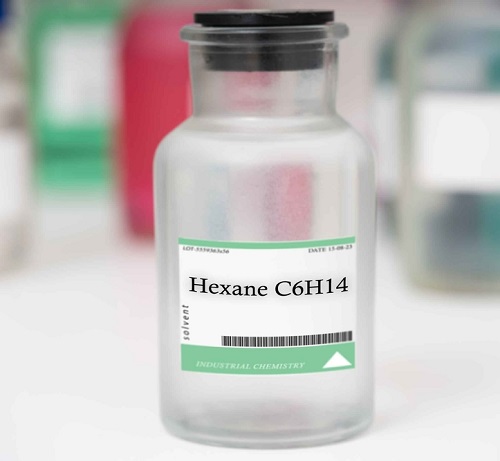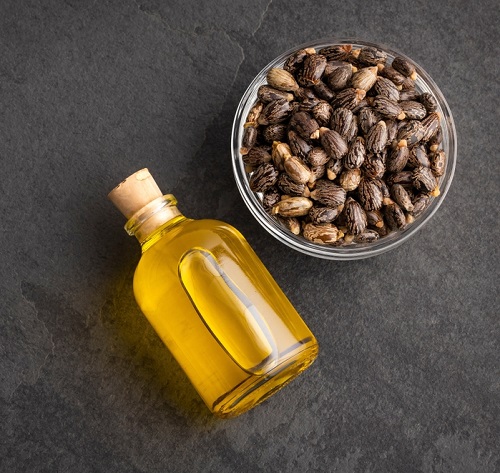Wondering What is Hexane in Castor Oil and how it can affect your health? This informative guide will answer all your doubts!
The benefits of castor oil are no secret. This golden liquid has been an essential part of traditional healing methods and beauty regimens for centuries. However, the castor oil that you find on your supermarket shelves isn’t always in its purest form. Sometimes, it’s processed using a chemical called hexane. This article aims to shed light on What is Hexane in Castor Oil and the implications of its use.
What is Hexane in Castor Oil?
Producing castor oil involves a series of processes to extract oil from the seed of the Ricinus communis plant. One of the most common methods is solvent extraction, which often involves hexane.
Hexane, a simple alkane hydrocarbon, serves as an effective solvent due to its ability to dissolve and bind with the oil in castor seeds. After the oil and hexane mixture is removed, the hexane is then evaporated, leaving behind pure castor oil.
Is Castor Oil Vegan? Learn here
Is Hexane in Castor Oil Safe?

Hexane is a highly effective solvent, but its safety profile is controversial. Hexane is a neurotoxin, meaning it can have negative effects on the nervous system if a person is exposed to large quantities. It’s also volatile and can contribute to air pollution when not handled properly. However, its presence is generally not present in the final product. The process involves evaporating the hexane, leaving behind the oil.
While there is a possibility of trace amounts of hexane in castor oil, regulations in place by the Food and Drug Administration (FDA) ensure that any residual hexane levels in oils are far below the level that could pose a risk to human health.
The primary risk associated with hexane remains for the industrial workers in factories where it is used extensively. The Occupational Safety and Health Administration (OSHA) has set permissible exposure limits for hexane in the workplace.
Is Castor Oil Flammable? Learn here
Potential Health Concerns
Given that hexane is meant to be entirely removed during production, the risks are more relevant to those involved in the manufacturing process rather than the end-users of the oil. Here are some potential risks:
- Neurological Effects: Chronic exposure to high levels of hexane, mainly through inhalation, can lead to neurological symptoms such as headaches, dizziness, numbness in the extremities, and muscular weakness. These effects are more common in workers in industries where hexane is used regularly without proper safety measures.
- Skin Irritation: In its pure form, hexane can cause skin irritation or dermatitis. This is again more of a concern for factory workers handling hexane directly.
- Respiratory Issues: Inhalation of hexane vapors can cause respiratory problems, including coughing and shortness of breath.
- Environmental Impact: It is a volatile organic compound that contributes to air pollution when released into the atmosphere. This is not a direct health risk from the use of hexane-extracted castor oil, but it’s a significant environmental concern.
Does Castor Oil Pack Freeze? Learn here
Is Organic Cold-Pressed Castor Oil Hexane Free?
Yes, organic cold-pressed castor oil is hexane free.
The cold-press extraction method retains more nutrients and avoids hexane contamination. This method involves mechanically pressing the oil from the seeds without heat or chemicals. However, it yields less oil, making the product more expensive compared to hexane extraction.
Get an Honest Review on Queen of Thrones Castor Oil Pack here
How to Detect Hexane in Castor Oil?
As a consumer, it is challenging to identify whether castor oil contains hexane residue, as it is colorless and odorless. Once the oil extraction process is complete, any hexane that was used is removed. Even if trace amounts remained, they wouldn’t affect the appearance or smell of the oil.
Detecting trace amounts of hexane in a substance requires laboratory testing and specialized equipment, not something you can typically do.
Is Castor Oil Comedogenic? Learn here
How to Ensure Hexane-Free Castor Oil?
- Check the Label for Extraction Method: The product label should specify the method of extraction. Look for phrases like “cold-pressed” or “expeller-pressed” to indicate the absence of chemical solvents in the process.
- Look for ‘Hexane-Free’ on the Label: Manufacturers who understand consumer concerns about hexane often label their products as ‘hexane-free’ if no hexane is used in the extraction process.
- Buy Organic: Choosing organic products can be another way to ensure that no chemical solvents, including hexane, were used in the oil extraction process. Organic certification standards often prohibit the use of chemical solvents. Learn all about buying castor oil here.


